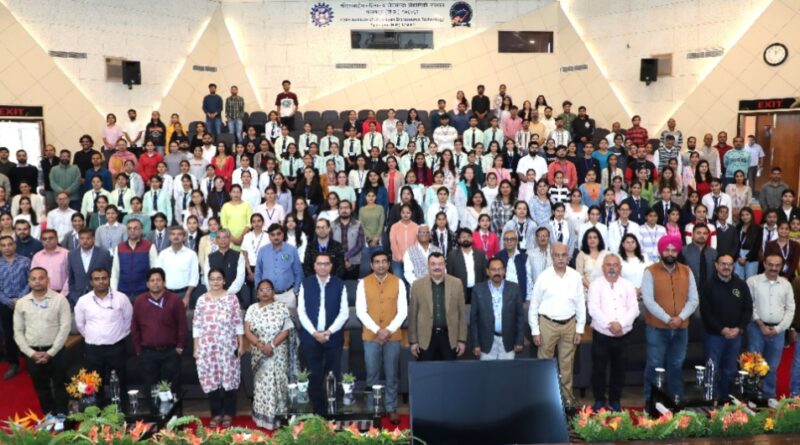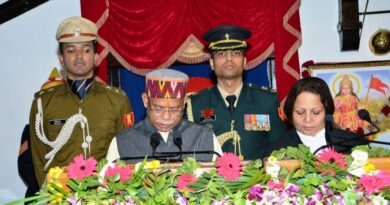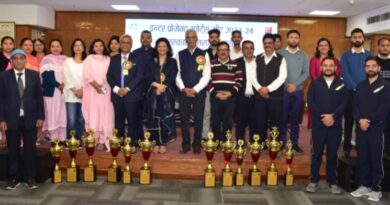National Workshop on ‘Communicate to Connect: Science for All’ organised at CSIR-IHBT
In the serene hills of Palampur, Himachal Pradesh, a powerful conversation is unfolding—one that could reshape how science reaches every corner of India. From October 14 to 15, 2025, the CSIR-Institute of Himalayan Bioresource Technology (CSIR-IHBT) is hosting a national workshop titled “Communicate to Connect: Science for All”, in collaboration with the National Institute of Science Communication and Policy Research (CSIR-NIScPR), New Delhi.
This two-day event isn’t just another academic gathering. It’s a vibrant meeting of minds—scientists, communicators, tech leaders, and policy experts—united by a shared mission: to make science accessible, inclusive, and engaging for all.
Voices That Matter
The workshop kicked off with a warm welcome from Dr. Geetha Vani Rayasam, Director of CSIR-NIScPR, who emphasized the need to spotlight scientific research happening in every part of India, especially in remote regions like Palampur. “Science belongs to everyone,” she said, “and it’s time we make sure everyone knows it.”
Shri Chandra Bhushan Singh, Chief Scientist and Head of the Popular Science Division at CSIR-NIScPR, echoed this sentiment, highlighting the importance of building a collaborative science community through outreach and education.
Adding a tech perspective, Shri Balendu Dadhich, Director at Microsoft India, spoke passionately about the challenges of misinformation in the digital age. He called for stronger fact-checking and oversight, especially as artificial intelligence becomes more embedded in our lives.
Bridging the Lab and the Land
Dr. Manoj Patairiya, former adviser at NCSTC, DST, Delhi, reflected on the confusion during the COVID-19 pandemic and the urgent need for trustworthy science communication. “We need an army of communicators,” he said, “to carry verified knowledge from labs to the people—and back.”
Dr. Sudesh Yadav, Director of CSIR-IHBT, brought a heartfelt touch to the conversation, reminding everyone that science isn’t just about data—it’s about empathy. “Scientific understanding combined with feelings,” he said, “is the true spirit of science.”
Lessons from the Field
Chief guest Prof. K. G. Suresh, Director of India Habitat Centre, shared powerful insights from India’s polio campaign, where local influencers and doctors played a key role in dispelling myths and boosting vaccine acceptance. He urged that science communication be woven into all aspects of governance—not just limited to science departments.
Ideas That Inspire
The day continued with dynamic discussions on media’s evolving role, women’s voices in science, and reaching underserved communities. Esteemed speakers like Dr. Chandra Mohan Nautiyal, Shri Hasan Jawaid Khan, Dr. Suman Ray, and Dr. Manish Mohan Gore brought decades of experience to the table.
Sessions explored creative formats—from social media and science fiction to poetry and electronic media—proving that science can be told in many compelling ways.
Looking Ahead
Day two promises even more excitement, with a student-scientist connect program focused on popular science writing and participant presentations.
At its core, the workshop is a bold step toward CSIR’s vision of a rational, inclusive society—one where science bridges divides, empowers communities, and sparks curiosity in every heart.
Stay tuned as Palampur becomes the epicenter of a movement that’s changing how India talks about science—one story at a time.



